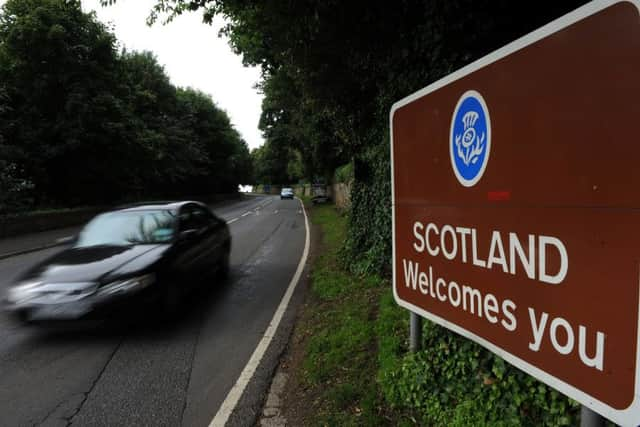SNP set to unveil ‘Scottish visa’ plan to combat Brexit
The scheme will be aimed at “addressing depopulation and cutting skills gaps” and will draw heavily on similar schemes which operate in Australia and Canada.
According to the Scottish Government, all of the country’s population growth for the next 25 years is projected to come from migration, in contrast to the rest of the UK, and there are fears that new UK Government immigration controls and the end of free movement are expected to exacerbate the risk of skills gaps and labour shortages in Scotland.
Advertisement
Hide AdAdvertisement
Hide AdThe Scottish Government yesterday refused to reveal any detail about the Scottish visa plans ahead of today’s announcement, but Ms Sturgeon has previously expressed a desire for immigration to be devolved to tackle Scotland’s falling birth rate and ageing population.


A government source said: “The First Minister will outline things in more detail, but this policy is one that has worked well in Canada and Australia and within specific provinces and states there. They have shown it’s possible to have different approaches in different parts of a sovereign state.”
In a document published last year “Scotland’s Population Needs and Migration Policy” the Scottish Government did explore how a devolved visa scheme could operate. The paper called for the devolution of migration policy “within a UK framework to meet Scotland’s needs” and said Scottish ministers would set the criteria and rules for a visa to enter the UK which would allow migrants to “live and work in Scotland with a Scottish tax code”, with holders unable to live elsewhere in the UK.
It added: “The Scottish tax code is an example of an existing framework based on residence. Both migrants themselves and employers recruiting workers would have a choice of routes through the UK immigration system. They could still apply for one of the other visas within the UK immigration system, which would allow for living and working in Scotland with the ability to move elsewhere in the UK.
“Alternatively, a devolved ‘Scottish visa’ would be an additional option for people who want to live, work and eventually settle in Scotland, and would not place additional administrative burdens on businesses or individuals.
“The ‘Scottish visa’ would be an extra option in the UK system, and not a separate bureaucratic process. The Scottish Government would want to work in partnership with the UK Government to deliver this additional ‘Scottish visa’.”
The paper goes on to suggest that the Scottish visa would not have a “sponsorship role” for employers, which would “remove a significant burden from the small and medium enterprises which make up a higher share of the economy in Scotland than in the rest of the UK.
“Employers taking on someone holding this visa would not need to be licenced by the Home Office, as it would not be a sponsored visa. Furthermore, the immigration skills charge would not apply, as currently defined by the UK, and there would be no salary threshold – although earnings could be part of the selection process, encouraging highly skilled people to take up quality jobs in Scotland but not excluding anyone solely on the basis of salary.
Advertisement
Hide AdAdvertisement
Hide Ad“Other countries such as Australia and Canada have regional immigration schemes to allow states and provinces to attract and retain people with the skills and attributes needed to benefit the local economy and local communities.”
The announcement on a Scottish visa comes just a week after the First Minister attempted to reassure EU migrants ahead of Brexit telling them Scotland “is as much your home as it is my home” and urging them to remain in the country. She also said she understood the “resentment” at having to apply for the right to stay in the UK.
Yesterday both Scottish Labour and the Scottish Conservatives gave a cautious welcome to the idea.
Scottish Labour’s culture, tourism and external affairs spokesperson Claire Baker said: “Scottish Labour supports exploring a degree of flexibility within an overarching UK immigration system. We look forward to seeing the detail of the proposals.”
A spokesman for the Scottish Conservatives added: “We’re willing to look at any proposal which helps Scotland prosper in this new era. It’s essential the SNP government’s motives for this are to make Brexit work, not to stoke up division and agitate for independence.”